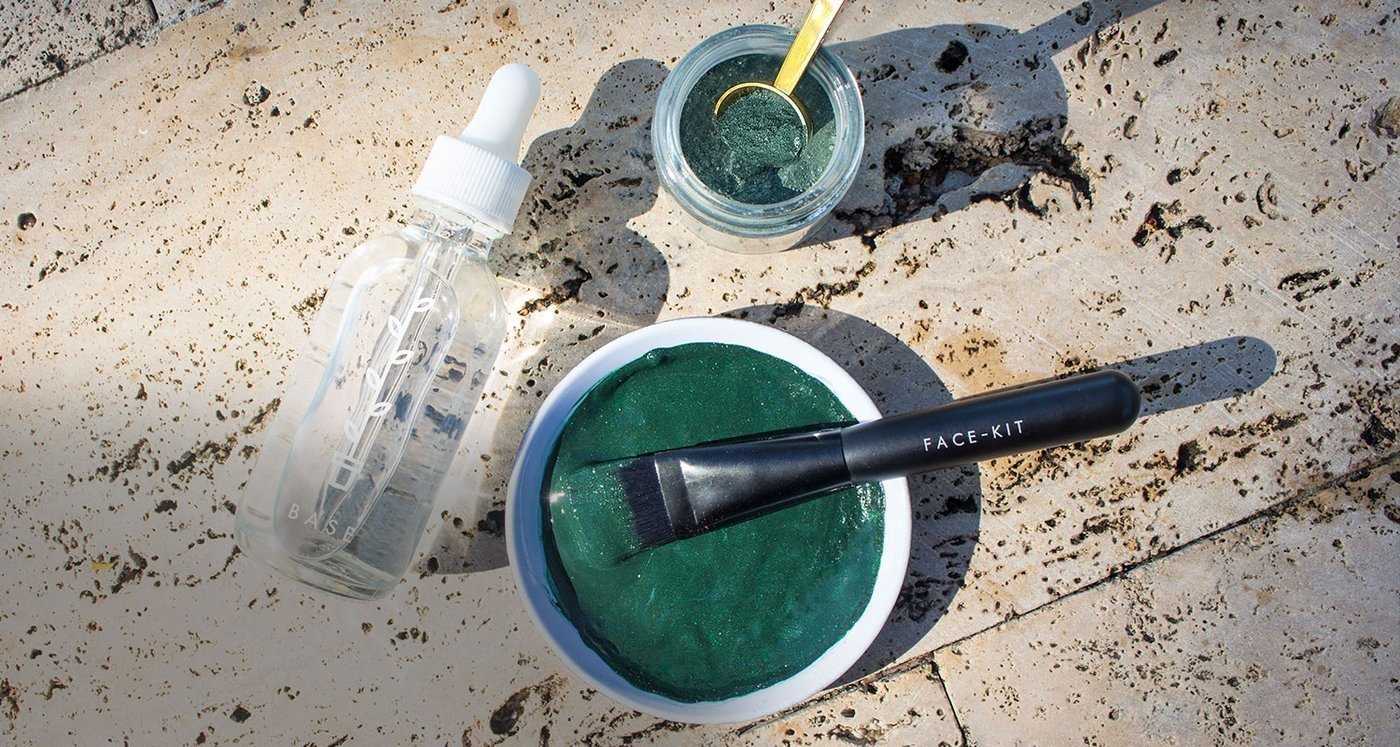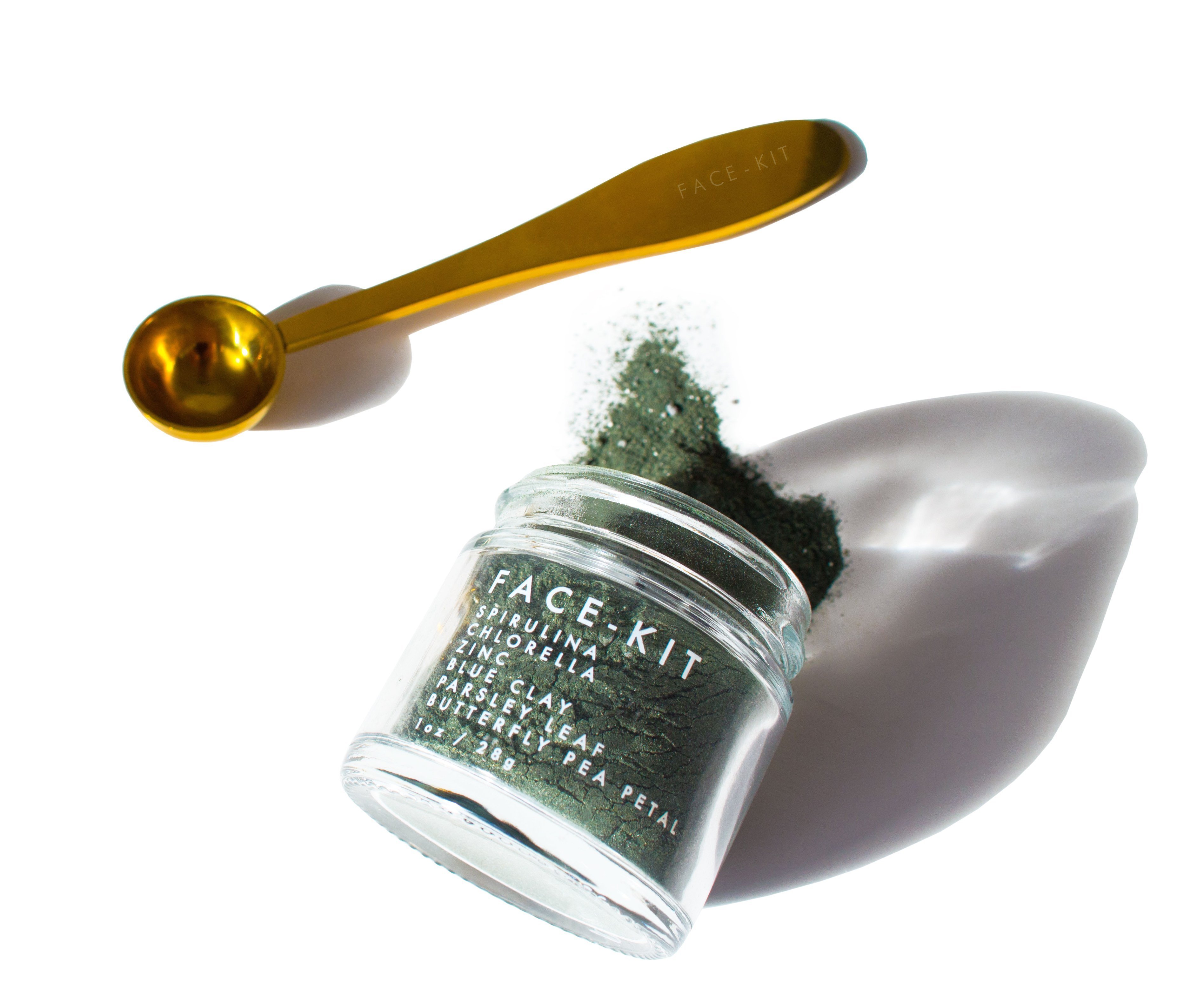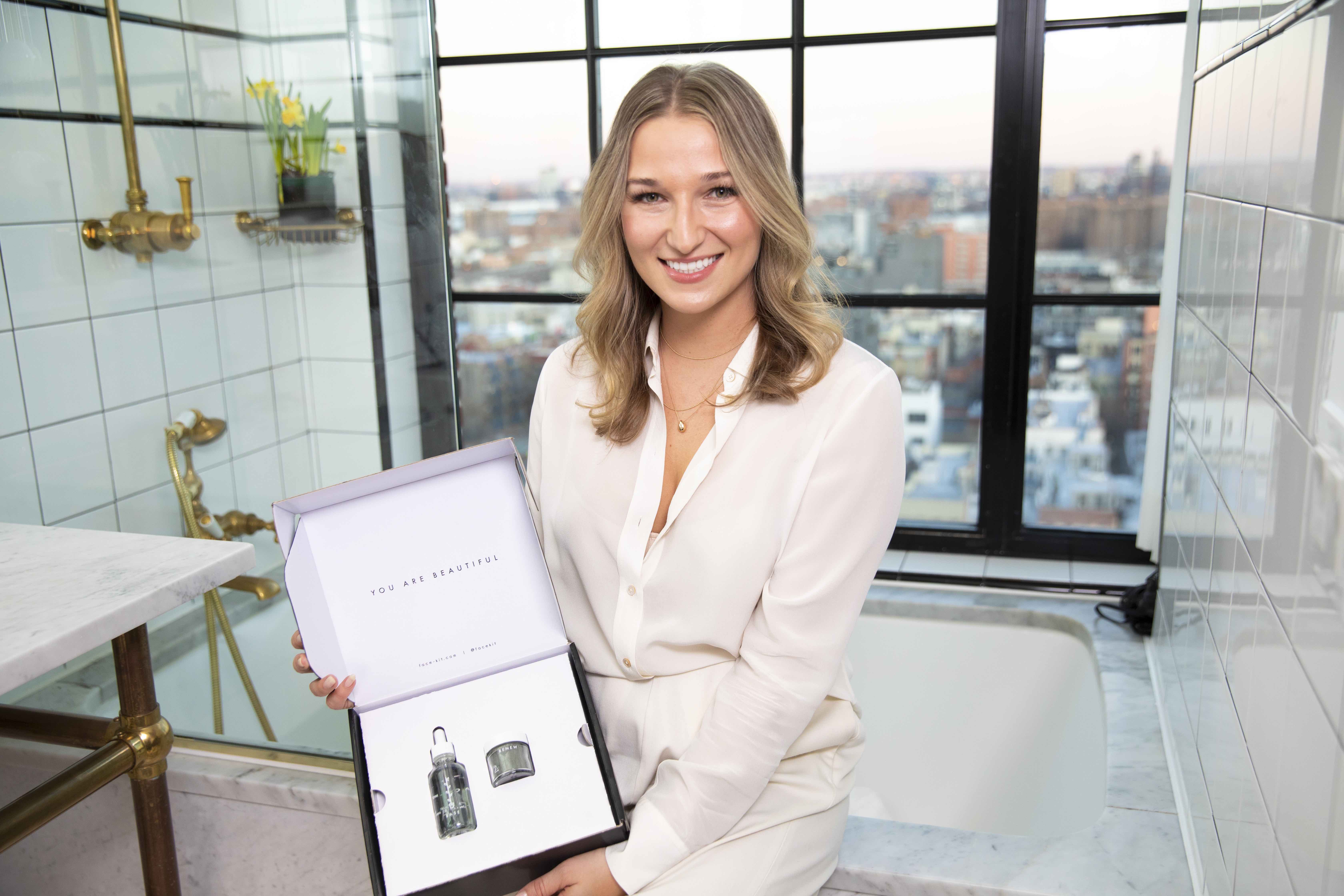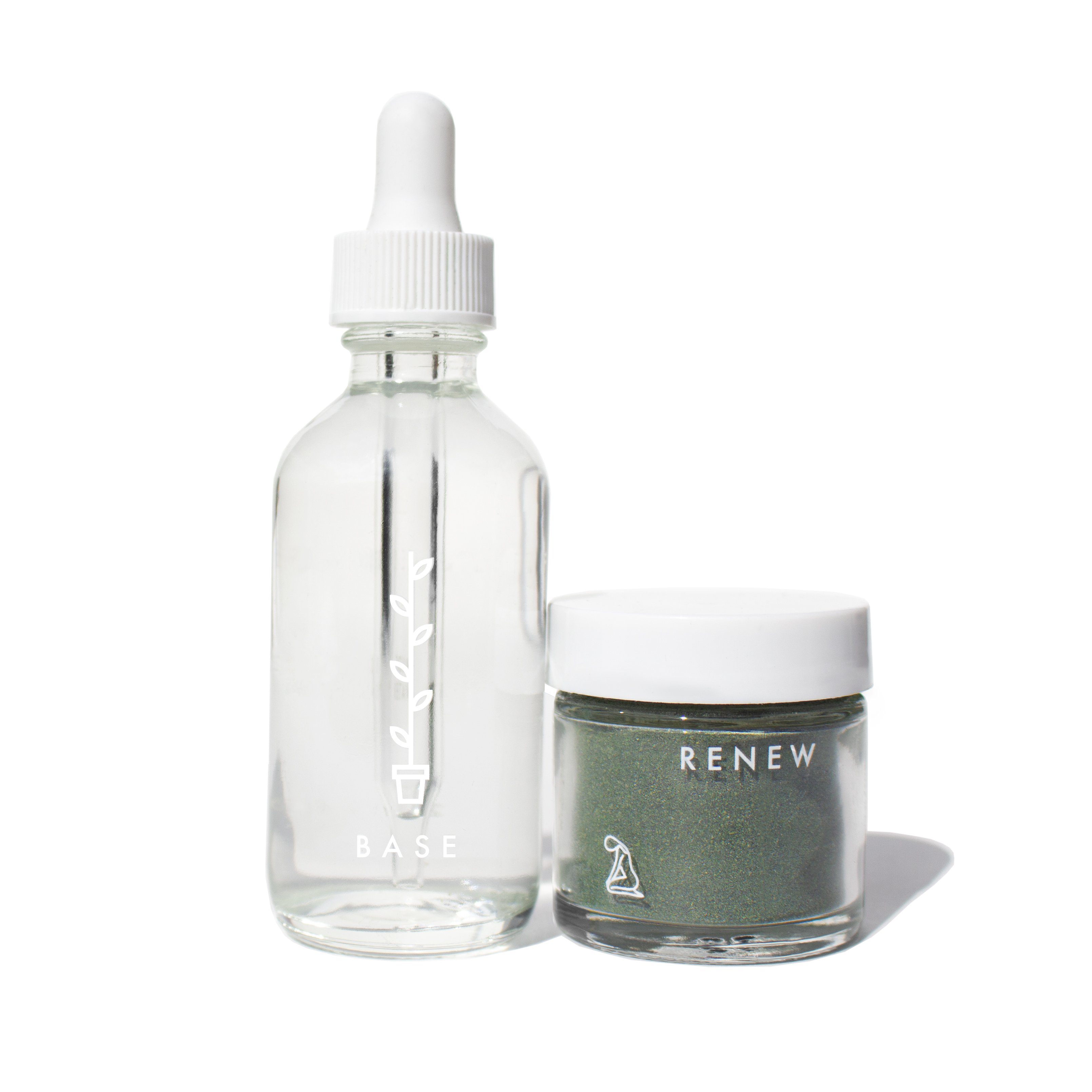
“Blue Apron For Skincare”: New Brand Face-Kit Makes It Easy To Create Face Masks At Home
A rising trend before the pandemic, DIY beauty has exploded during it. Stuck at home, people are dying their own hair, doing their own nails and concocting their own skincare.
While founder Elizabeth Schmidt certainly didn’t predict kicking off her new brand Face-Kit in the midst of a global crisis, the take-command approach to personal maintenance that’s dominated during it couldn’t be more suited to its concept centered on kits giving consumers the power to easily create fresh beauty formulas, starting with a face mask. Priced at $85, its debut product, Renew Mask Kit, features a 2-oz. powder blend containing spirulina, chlorella, parsley leaf, blue clay, zinc and butterfly pea petal paired with a 2-oz. bottle of aloe water, porcelain bowl, spoon, brush, microfiber cloth and linen bag.
“Consumers want to have clean ingredients and make their own products, but they don’t want to have too much work,” says Schmidt, explaining Face-Kit is akin to “Blue Apron for skincare.” “I want to have exactly what I need to make exactly what I want and be done with it. This is a hybrid between full DIY and having a bit of a DIY experience that makes it so there’s no guesswork.”

A freelance digital art director by trade, Schmidt’s clients have included Redken, Mizani and Pureology. About four years ago, she began whipping up lotion and mask recipes in her kitchen to ensure the products she slathered on her face didn’t irritate her sensitive skin. Satisfied with the outcomes, she doled out her beauty remedies to friends. By the time one friend who received a mask from Schmidt went to use it, the mask had hardened. To avoid that undesired product fate, Schmidt decided to separate mask ingredients and allow her friends to assemble them prior to application.
“As I got more into it, I thought, ‘Wow, this is something interesting, maybe I should do a small-batch brand.’ I really liked the kit idea and mixing up the mask,” says Schmidt. “Then, I realized, I don’t want to do it small. If I do it, I want to do it right and make it beautiful.”
“This is a hybrid between full DIY and having a bit of a DIY experience that makes it so there’s no guesswork.”
Face-Kit’s design is simple and direct to reflect the brand’s straightforward selection of nutrient-packed, pure ingredients. The kit is encased in a black and white box, and the initial product’s powder and aloe water are housed in clear and white containers with descriptors of their purposes and graphics to illustrate them on their front, but no logos. The brand name and a clear rundown of ingredients are on the back. “Anyone looking at it for two seconds knows exactly what’s in the product,” says Schmidt, noting the packaging was chosen to be sustainable and reusable.
Face-Kit customers combine the powder with six to seven drops of aloe water to transform it into a face mask with a clay consistency. The brand instructs them to keep the mask on for 10 minutes, and it’s developed 10-minute meditations available on its website to calm the mind as the mask does its job. “The idea is to turn the skincare routine into a ritual,” says Schmidt. “I want to be a supportive brand rooted in wellness.”

Due to the coronavirus, Schmidt debated delaying the launch of Face-Kit indefinitely. But, pondering the thesis of her brand, she concluded it had a product and reason for being highly relevant to the moment, and pressed forward with the launch. “I thought, ‘OK, I do have something to offer.’ The biggest thing I had to think about was, ‘How do I speak to my consumer right now knowing we are all struggling?’” she says. Schmidt details Face-Kit has stepped away from a “selling strategy” and toward a “sharing strategy.”
“I’m sharing ideas for how to take time for yourself and hoping that, through the sharing, I can connect with her [the consumer] on an authentic level,” she says. “If I can offer 10 to 15 minutes for wellness, meditation and affirmation, that’s actually something we could all really use right now.” The revised strategy could particularly appeal to Face-Kit’s target consumers, women Schmidt believes are carefully investing in a few brands that enhance their “personal growth.”
“If I can offer 10 to 15 minutes for wellness, meditation and affirmation, that’s actually something we could all really use right now.”
Schmidt has modified her business expectations as a result of the coronavirus outbreak. She’s viewing Face-Kit’s premiere as a soft launch. Testing out social media advertising, and forging strong relationships with consumers and other entrepreneurs for collaborations are critical objectives today. Later, when the effects of the pandemic ebb, she’s anticipating paying greater attention to sales.
However, an early goal for Face-Kit is to sell the 1,500 Renew Mask Kit units it’s ordered in its first year on the market. The brand is set to release a second blend by the end of the year. Ultimately, Face-Kit plans to introduce several mask varieties, and push into scrubs and serums, among numerous beauty products. “As I roll out more products, there will always be a deconstructed element,” says Schmidt. “You put together the product so we can skip preservatives and stabilizers completely.”

Face-Kit isn’t the only DIY beauty brand. There are many that place consumers in the driver’s seat to varying degrees. Four examples are Costa Craft Beauty Co., LOLI, Skin Inc and Fresh Chemistry. Schmidt doesn’t fear competition and welcomes it from companies that have Face-Kit’s clean positioning. She says, “I don’t see other clean brands as competitors, but more as allies trying to make a change in the beauty industry. As someone who has worked in big skincare, I’m passionate about offering women clean beauty. It’s a bigger mission for me. So, if there is more people in on this mission, how can I see them as competitors?”
Eventually, Schmidt envisions Face-Kit possibly entering the clean beauty assortments at retailers such as Credo and Sephora. Currently, though, she’s sticking to a direct-to-consumer model for the brand. “I really want to own the process and the messaging that comes with the kit,” says Schmidt. “I know that, if I want to keep it special, I have to be the one to deliver that.”





Leave a Reply
You must be logged in to post a comment.